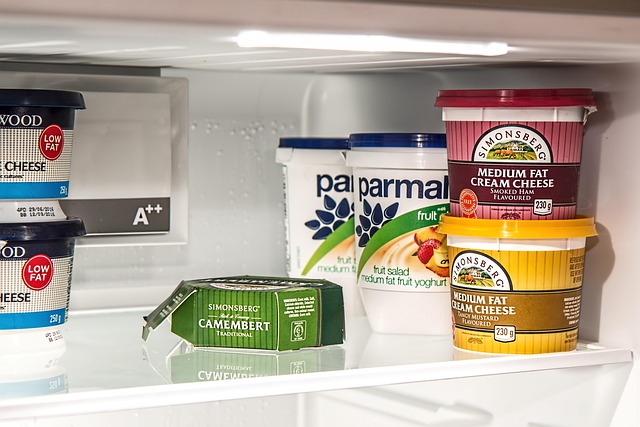Pantry Products Pulled from Shelves: What You Might Still Be Eating
Several pantry staples have been urgently recalled due to contamination risks and undeclared allergens. From cereal boxes to frozen pies, this update highlights the food items you should check immediately, how to report them, and safer alternatives to stock up on.

Which pantry staples are currently under recall?
The list of recalled pantry items is extensive and diverse. Some of the most common products affected include:
-
Breakfast cereals: Several popular brands have been recalled due to potential salmonella contamination.
-
Canned soups: Undeclared allergens, particularly milk and soy, have led to recalls of various canned soup products.
-
Peanut butter: Some batches have been found to contain metal fragments, prompting immediate recalls.
-
Frozen pizzas: Listeria contamination concerns have resulted in the recall of multiple frozen pizza brands.
-
Flour: Certain flour products have been recalled due to the potential presence of E. coli.
It’s important to note that these recalls affect both name-brand and store-brand products, so it’s essential to check all items in your pantry, regardless of their origin.
How can you check if your kitchen items are affected?
To determine if the products in your kitchen are part of the recall, follow these steps:
-
Check the product name, brand, and packaging against the official recall lists provided by food safety authorities.
-
Look for the batch number or lot code on the packaging, which is usually printed near the expiration date.
-
Compare this information with the specific details provided in the recall notices.
-
If you’re unsure, visit the manufacturer’s website or contact their customer service for clarification.
Remember, it’s better to be safe than sorry. If you have any doubts about a product’s safety, it’s best to dispose of it properly.
What are the risks of consuming recalled products?
Consuming recalled pantry staples can pose serious health risks. The dangers vary depending on the reason for the recall:
-
Bacterial contamination (e.g., Salmonella, Listeria, E. coli) can cause severe food poisoning symptoms, including fever, diarrhoea, and abdominal cramps.
-
Undeclared allergens pose a life-threatening risk to individuals with specific food allergies.
-
Foreign objects like metal fragments can cause physical injury or choking hazards.
-
Chemical contaminants may lead to long-term health issues if consumed regularly.
Even if a product doesn’t appear or smell unusual, it’s crucial to take recall notices seriously, as contamination may not be visibly apparent.
How should you dispose of recalled items safely?
When dealing with recalled pantry products, follow these safe disposal methods:
-
Do not consume the product or give it to others, including pets or livestock.
-
Seal the item in a plastic bag before disposing of it in your regular household waste.
-
Clean and sanitise any surfaces or utensils that may have come into contact with the recalled product.
-
Wash your hands thoroughly after handling the item.
-
If possible, return the product to the place of purchase for a refund or exchange.
Remember to keep your receipt or proof of purchase if you plan to seek a refund for the recalled item.
What are some safe alternatives to stock your pantry?
In light of these recalls, it’s wise to consider safer alternatives for your pantry. Here are some suggestions specific to the United Kingdom:
-
Opt for locally sourced, organic cereals from trusted British brands.
-
Choose homemade soups or reputable fresh soup brands available in supermarket chillers.
-
Consider alternatives to peanut butter, such as almond or cashew butter from UK-based producers.
-
Make your own pizza at home using fresh ingredients, or choose from well-established British frozen pizza brands with a good safety record.
-
Purchase flour from local mills or artisanal bakeries that prioritise quality control.
By diversifying your pantry with these alternatives, you can reduce the risk of being affected by large-scale recalls while supporting local businesses.
Where can you find up-to-date information on product recalls?
To stay informed about the latest product recalls in the United Kingdom, consider the following resources:
| Resource | Type of Information | Update Frequency |
|---|---|---|
| Food Standards Agency (FSA) | Official food alerts and recalls | Daily |
| Trading Standards | Consumer protection and product safety | As needed |
| Manufacturer websites | Brand-specific recall notices | Varies |
| Supermarket recall sections | Store-specific product withdrawals | Weekly |
| Food Alerts email service | Direct notifications of food recalls | As recalls occur |
Prices, rates, or cost estimates mentioned in this article are based on the latest available information but may change over time. Independent research is advised before making financial decisions.
Regularly checking these sources can help you stay ahead of potential risks and ensure the safety of your pantry items. Remember, being proactive about food safety is an essential part of maintaining a healthy household.
This article is for informational purposes only and should not be considered medical advice. Please consult a qualified healthcare professional for personalized guidance and treatment.




